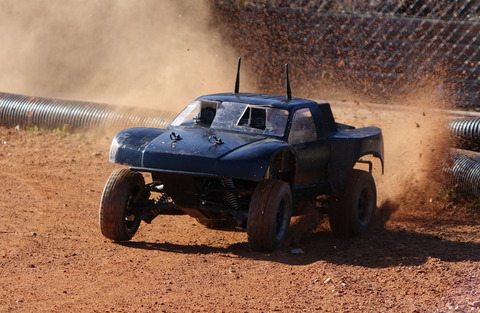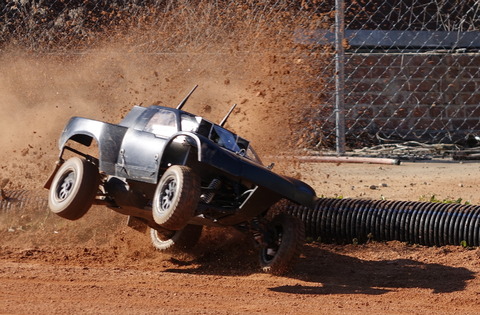From Brian Goldfain at Georgia Tech
We're the AutoRally team from Georgia Tech and we're pushing autonomous driving to the extreme with our AutoRally robot. Our robot reaches speeds of 20mph driving fully autonomously using only onboard sensing and computing at our test track, often powersliding around turns. We built this ROS compatible robot in-house as a high performance testbed for control and perception research because there was nothing like it commercially available. The platform is designed to be safe, robust, and accessible for testing aggressive autonomous driving.

 We initially chose to use ROS as our middle layer for the same reason so many other use ROS: so we didn't have to start from scratch. The node structure, messaging, existing sensor drivers, and visualization tools helped us get our system up and running quickly and focus on pushing the limits of autonomous driving. As the project grew, we found new students with ROS experience gained from tinkering, clubs, or classes. Instead of spending months familiarizing themselves with custom software, they arrive with an understanding of core concepts and vocabulary required to immediately contribute to the project.
We initially chose to use ROS as our middle layer for the same reason so many other use ROS: so we didn't have to start from scratch. The node structure, messaging, existing sensor drivers, and visualization tools helped us get our system up and running quickly and focus on pushing the limits of autonomous driving. As the project grew, we found new students with ROS experience gained from tinkering, clubs, or classes. Instead of spending months familiarizing themselves with custom software, they arrive with an understanding of core concepts and vocabulary required to immediately contribute to the project.
We want other ROS users to play with our code, build their own AutoRally platforms, then come race against our robots. Check out the AutoRally platform details here: http://autorally.github.io and a video of recent research on the platform presented at ICRA2016 titled "Aggressive Driving with Model Predictive Path Integral Control":
skip to the 2 minute mark if you just want to see the the results.
All of out our core code, a Gazebo world, and build instructions are available on GitHub: [https://github.com/AutoRally/autorally](https://github.com/AutoRally/autorally)






